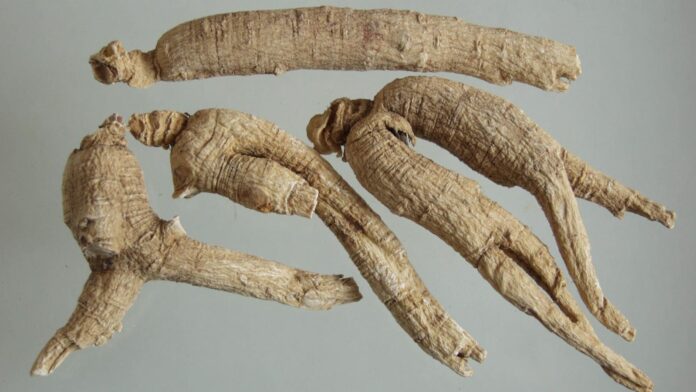INTRODUCTION
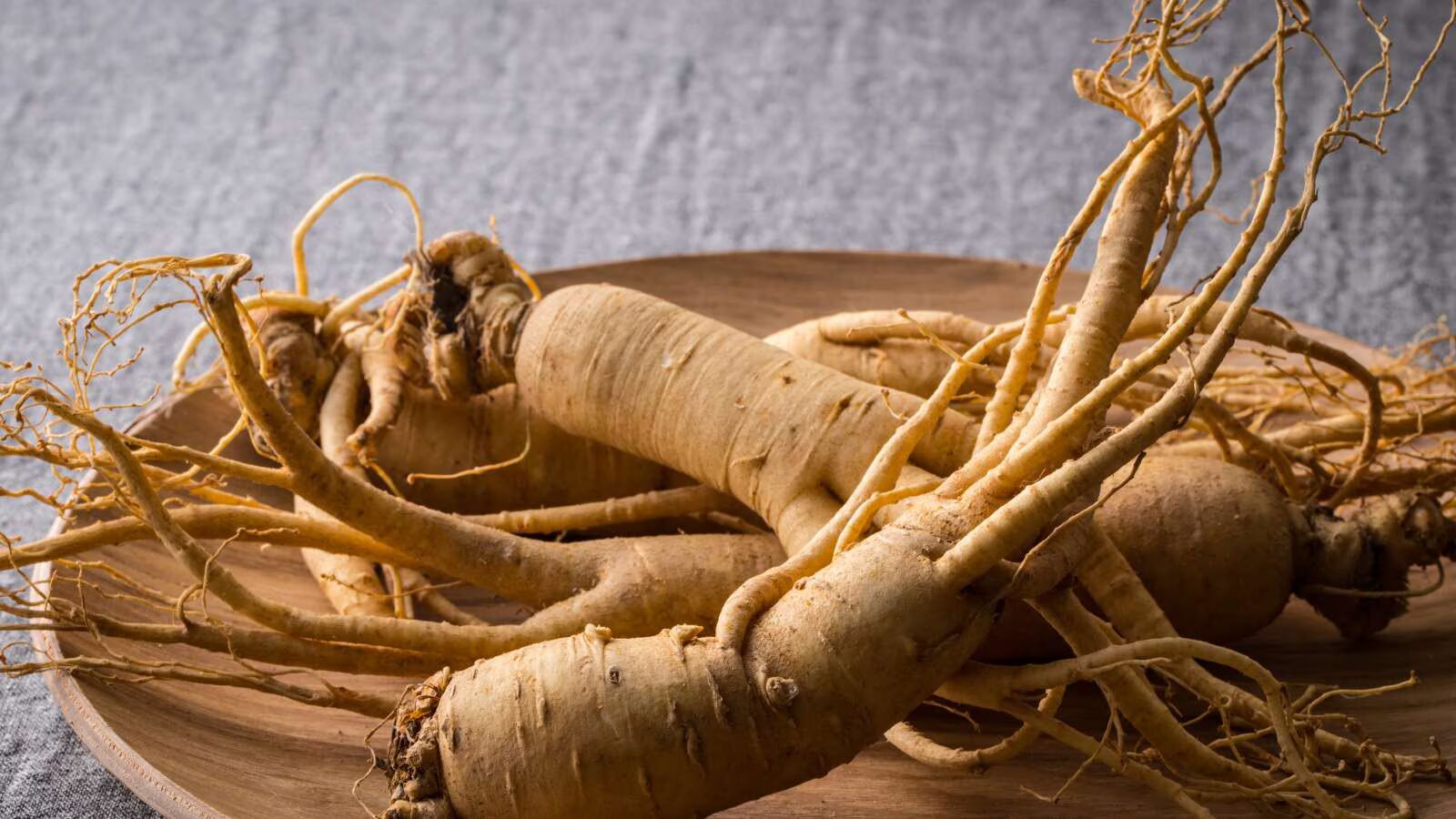
Ginseng is a slow-growing perennial plant with fleshy roots, known for its medicinal properties. It belongs to the genus Panax and is commonly found in North America and Eastern Asia. Ginseng roots are characterized by their forked shape, resembling a human figure, which contributes to their traditional use in herbal medicine. They contain compounds called ginsenosides, which are believed to have health benefits, including boosting energy levels, reducing stress, enhancing cognitive function, and supporting the immune system. Ginseng is commonly consumed in various forms, such as teas, extracts, powders, or supplements, and is a popular ingredient in traditional Chinese medicine.
TYPES
1. Asian Ginseng (Panax ginseng)
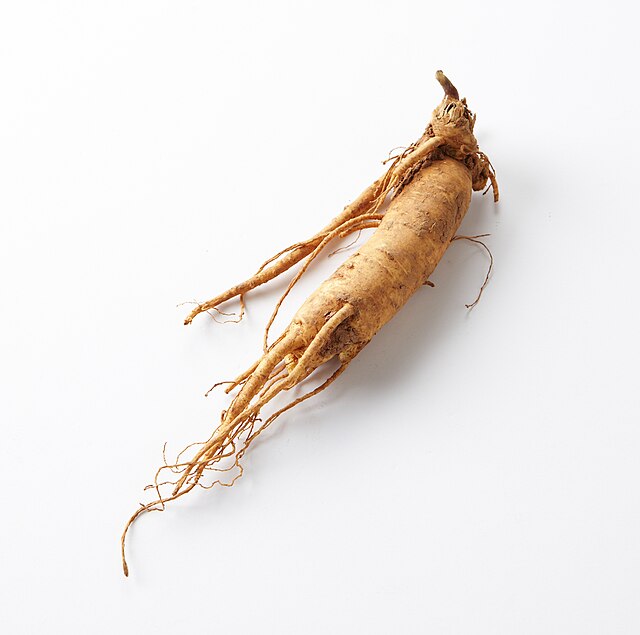
- Color: The root of Asian ginseng is typically light tan to a pale yellowish-brown when dried. It can sometimes be processed into red ginseng by steaming and drying, which gives it a reddish-brown color.
- Details: Also known as Korean or Chinese ginseng, this type is commonly used in traditional Chinese medicine. Red ginseng is believed to have more warming and stimulating properties, while white (unprocessed) ginseng is considered milder.
2. American Ginseng (Panax quinquefolius)
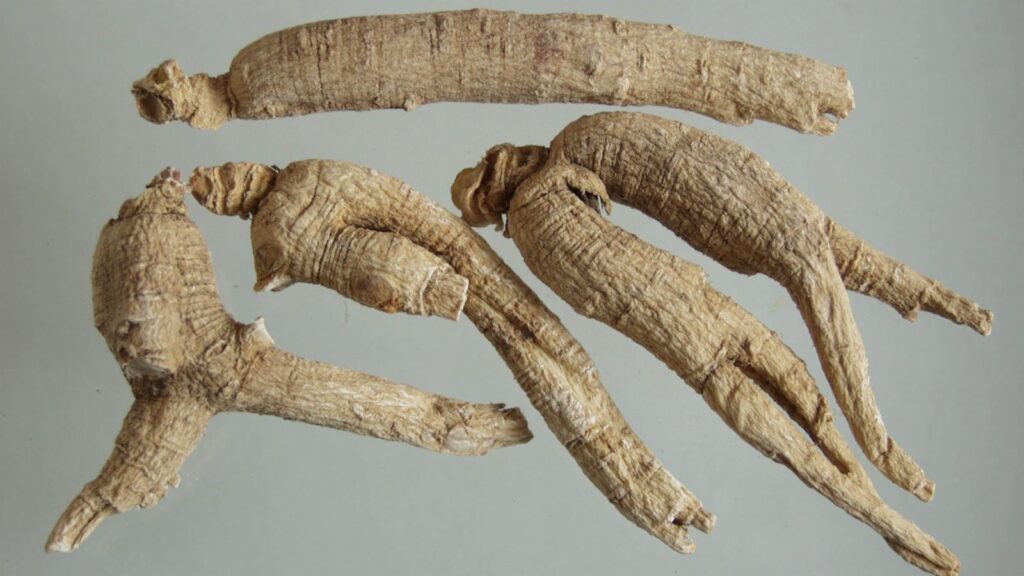
- Color: The root of American ginseng is usually a light tan or cream color. When dried, it maintains a beige to light brown hue.
- Details: Found primarily in North America, this type is known for its cooling properties and is often used to reduce stress and boost the immune system. It is less stimulating than Asian ginseng and is considered more suitable for long-term use.
3. Siberian Ginseng (Eleutherococcus senticosus)
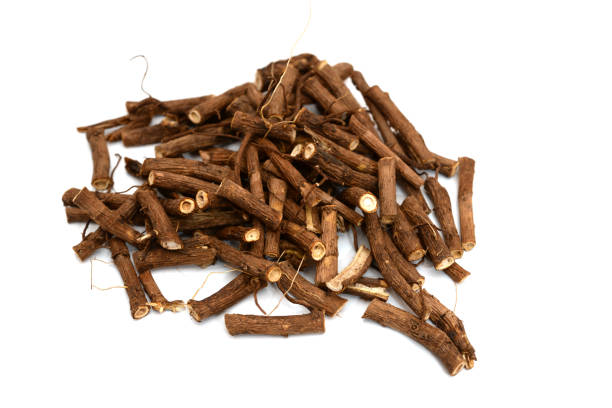
- Color: Although not a true ginseng, Siberian ginseng roots are generally brown or grayish in color. The extract derived from these roots can be light to dark brown.
- Details: Native to northeastern Asia, Siberian ginseng is often used for its adaptogenic properties, which help the body resist physical and mental stress. It does not contain ginsenosides but contains other active compounds called eleutherosides.
4. Red Ginseng
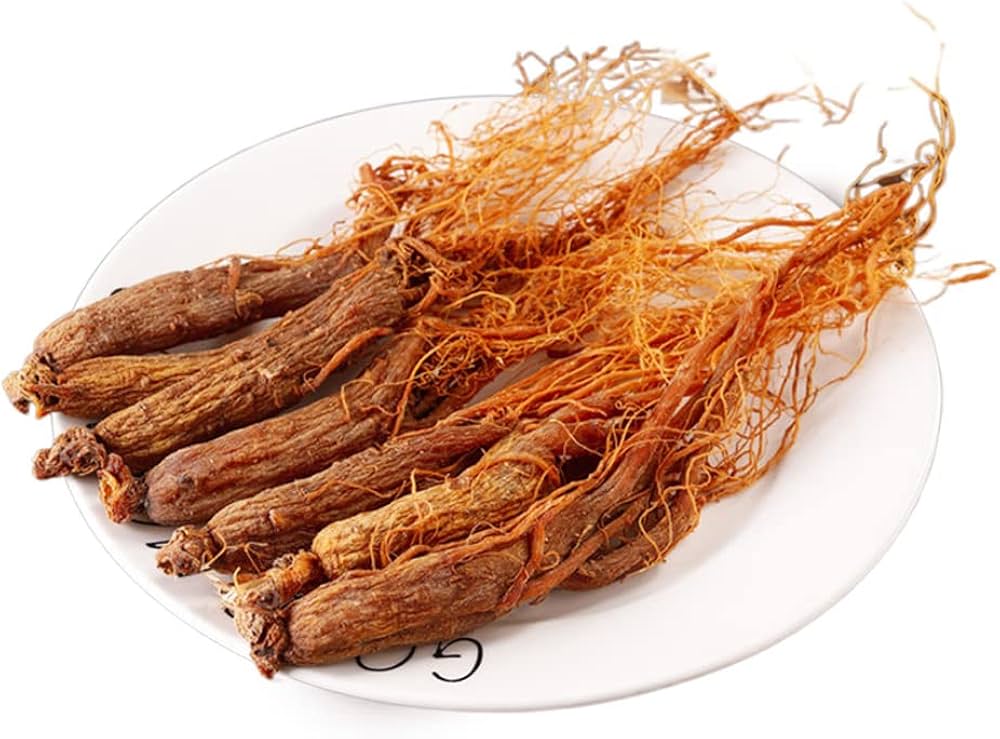
- Color: Red ginseng is typically reddish-brown, resulting from steaming and drying the root. This process changes the chemical composition, enhancing certain properties.
- Details: Primarily derived from Asian ginseng, red ginseng is considered more potent than white ginseng. It is often used for its stimulating and energy-boosting effects.
5. White Ginseng
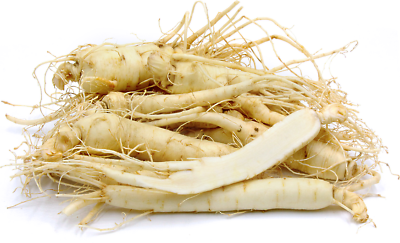
- Color: White ginseng is light tan or pale beige. It is produced by peeling and drying Asian or American ginseng roots without steaming.
- Details: White ginseng is considered milder than red ginseng and is often used for general health and wellness benefits.
USES
You can get ginseng as a dietary supplement in the form of tea, dried herbs, powder, or capsules.
Ginseng is sometimes also added to other, everyday products, such as toothpastes, soaps, baby foods, candies, beverages, cigarettes, and gum. The form you decide to use might depend on your health needs and your personal preferences.
Ginseng root
Ginseng root comes from several plant species in the Panax genus family. The root is the part of the plant that’s most often used for health purposes.
A ginseng root appears tan and twisted. It looks a lot like a body that has strings for arms and legs.
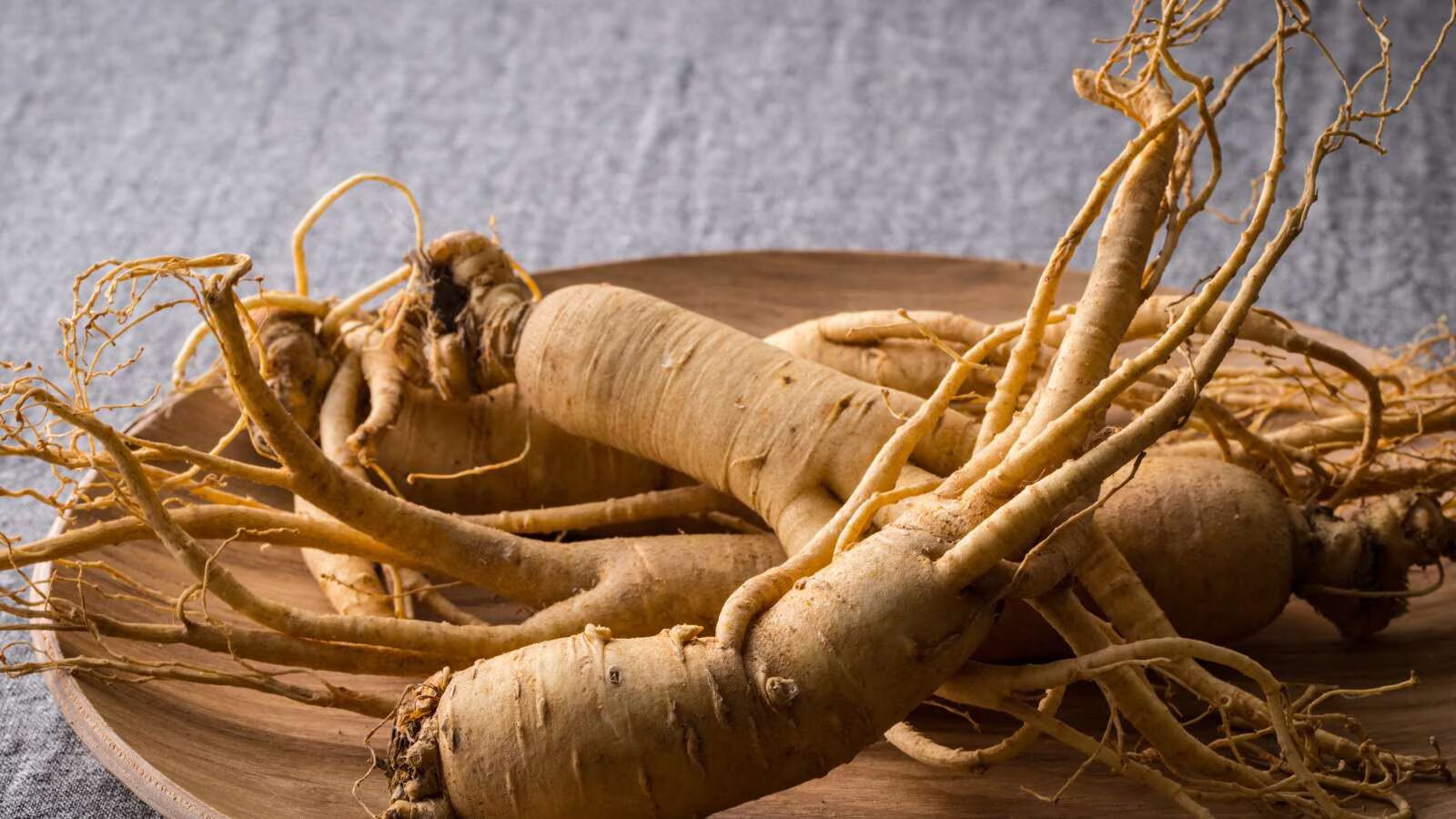
You can peel and chew the raw ginseng root. Another option is to soak it in wine to drink. Or you can boil the root to make into a tea.
Ginseng supplements
Ginseng is a top-selling supplement that comes in different forms. It’s important to remember that the FDA doesn’t regulate herbal supplements, such as ginseng. That means you might not really know exactly what’s in the product you take.
As a tablet or capsule, you can take ginseng supplements by mouth with water. These pills typically contain ground-up root or extract. They may include different types of ginsengs.
Ginseng root extract powder can be dissolved in different types of beverages. The powder may contain higher amounts of ginseng than the tablets or capsules.
Ginseng tea
Ginseng tea is made from the ginseng root. You can buy already-made teas or make them yourself out of roots or powder.
Ginseng herbs
Some research has suggested that ginseng dried herbs may offer more health benefits than raw ginseng. While you can dry ginseng yourself, the process can be complicated. Prepared dried ginseng is sold at many retail stores and online.
BENEFITS
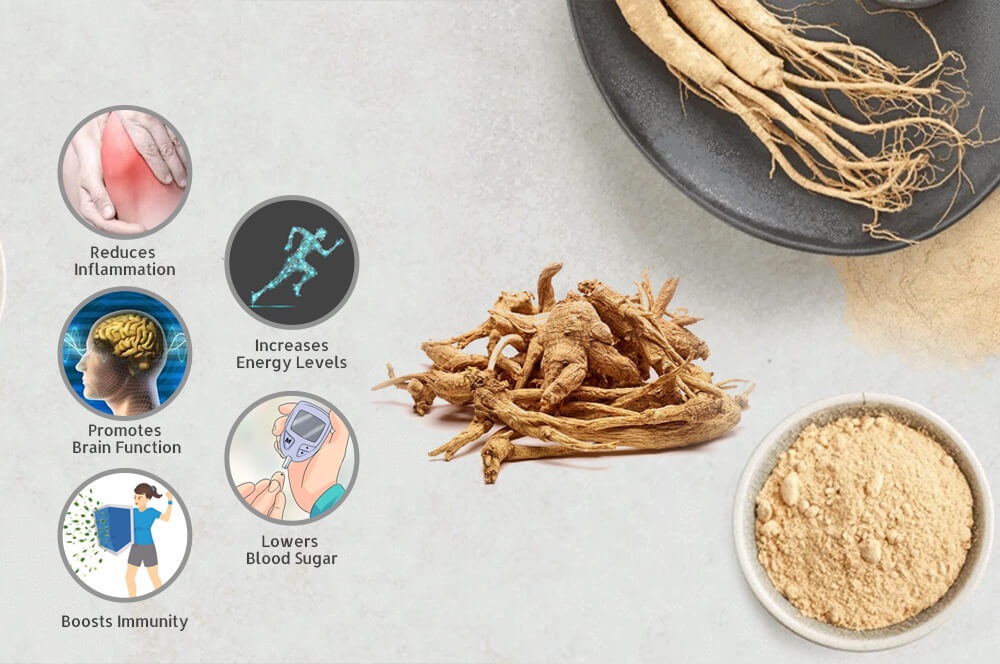
- Boosting Energy Levels: Ginseng is commonly used to increase stamina and reduce fatigue, making it a popular choice for those needing an energy boost.
- Enhancing Cognitive Function: It is believed to improve mental performance, focus, and memory, potentially aiding in cognitive enhancement.
- Supporting Immune System: Ginseng may help strengthen the immune system, helping the body fight off infections and illnesses more effectively.
- Reducing Stress: As an adaptogen, ginseng helps the body manage stress, promoting relaxation and a sense of calm.
- Improving Sexual Health: Ginseng is often used to enhance sexual performance and address erectile dysfunction, contributing to overall sexual well-being.
- Managing Blood Sugar: Some studies suggest that ginseng may help regulate blood sugar levels, which can be beneficial for individuals with diabetes.
- Enhancing Physical Performance: Ginseng may improve physical performance and endurance, making it popular among athletes and those engaging in strenuous activities.
- Boosting Mood: It has potential mood-enhancing properties, which can help alleviate symptoms of depression and improve overall emotional well-being.
- Improving Skin Health: Ginseng is sometimes used in skincare products for its antioxidant properties, which can help improve skin texture and reduce signs of aging.
- Supporting Cardiovascular Health: Some research indicates that ginseng may contribute to heart health by improving blood circulation and reducing blood pressure.Top of FormBottom of Form
SIDE EFFECTS
Ginseng side effects are generally mild. It has been reported to cause:
- Nervousness
- Insomnia
- Headaches
- Dizziness
- Upset stomach
- Skin reactions
- Allergic reactions
- Menstrual cycle changes
This Article is for Basic Information. Contact a professional doctor before using it.
HAKEEM KARAMAT ULLAH
+923090560000



